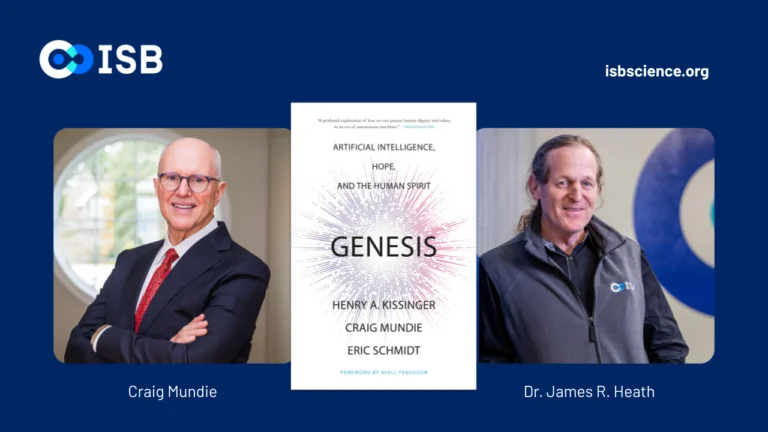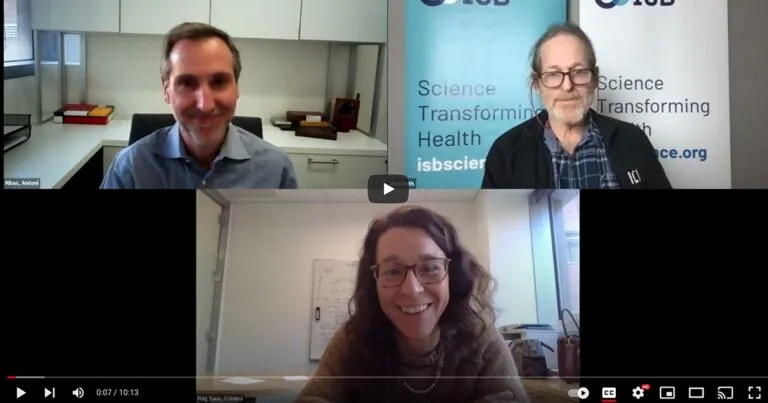
RECOVER 2.0: New Insights and Next Steps in Long COVID Research
Researchers from the NIH-funded RECOVER study shared new insights on the risks of Long COVID, autoimmune links, and upcoming clinical trials during ISB’s July Town Hall.

Researchers from the NIH-funded RECOVER study shared new insights on the risks of Long COVID, autoimmune links, and upcoming clinical trials during ISB’s July Town Hall.

In a Research Roundtable presentation and Q&A, ISB President Dr. Jim Heath shared how his team is using generative AI to unlock new understanding of human immunity, and how these discoveries could help predict disease severity, improve cancer therapies, and more.

Co-Author Craig Mundie and ISB’s Dr. Jim Heath discuss AI’s rapid evolution, ethical considerations, and potential to revolutionize science and society in a compelling Town Hall event.

ISB researchers have uncovered a stealth survival strategy that melanoma cells use to evade targeted therapy, offering a promising new approach to improving treatment outcomes.

Scientists at the Institute for Systems Biology (ISB) reveal how T cells “decide” their fate in fighting infections like COVID-19, paving the way for improved treatments for infections, cancer, and autoimmune diseases.

Infection, autoimmunity and cancer account for 40 percent of deaths worldwide. In a Cell Reports paper, ISB researchers detail how the human immune system works in common ways across diseases – findings that offer promising avenues for exploring multi-disease therapeutic strategies.

In a breakthrough discovery that changes how we understand T cells and with implications of how we can better engineer custom immune responses to fight disease, Institute for Systems Biology researchers showed that the different disease-fighting functions of different T cells are determined by the genetically encoded T-cell receptor sequence that are unique to those cells.

In a just-published paper in the journal Nature, a collaborative team of researchers from ISB, UCLA, PACT Pharma, and beyond analyzed T-cell responses in melanoma patients who were treated with different immune checkpoint inhibitors, and how those responses evolved over time.